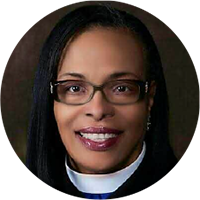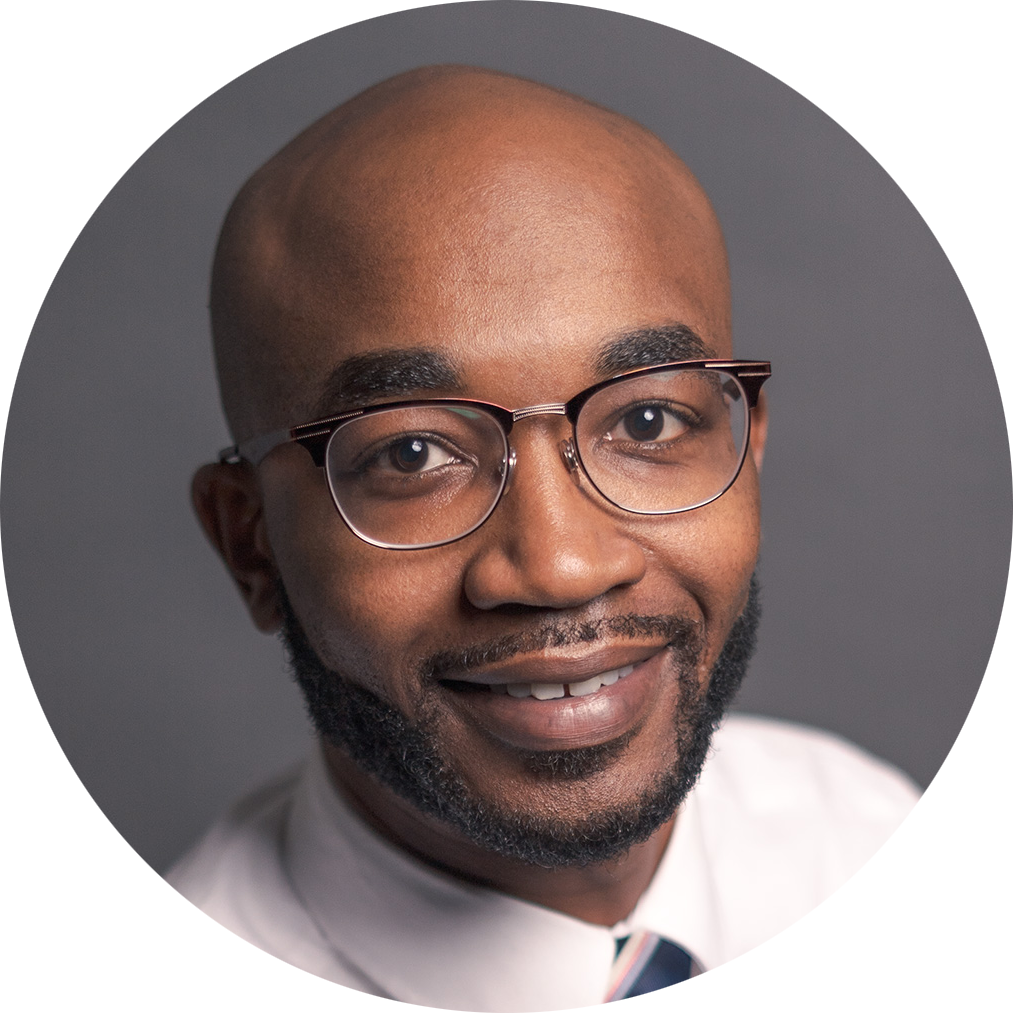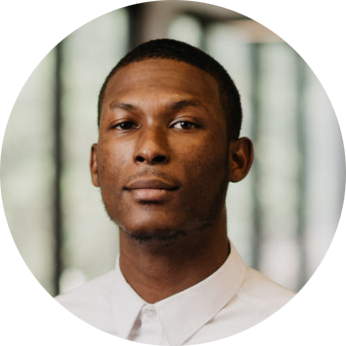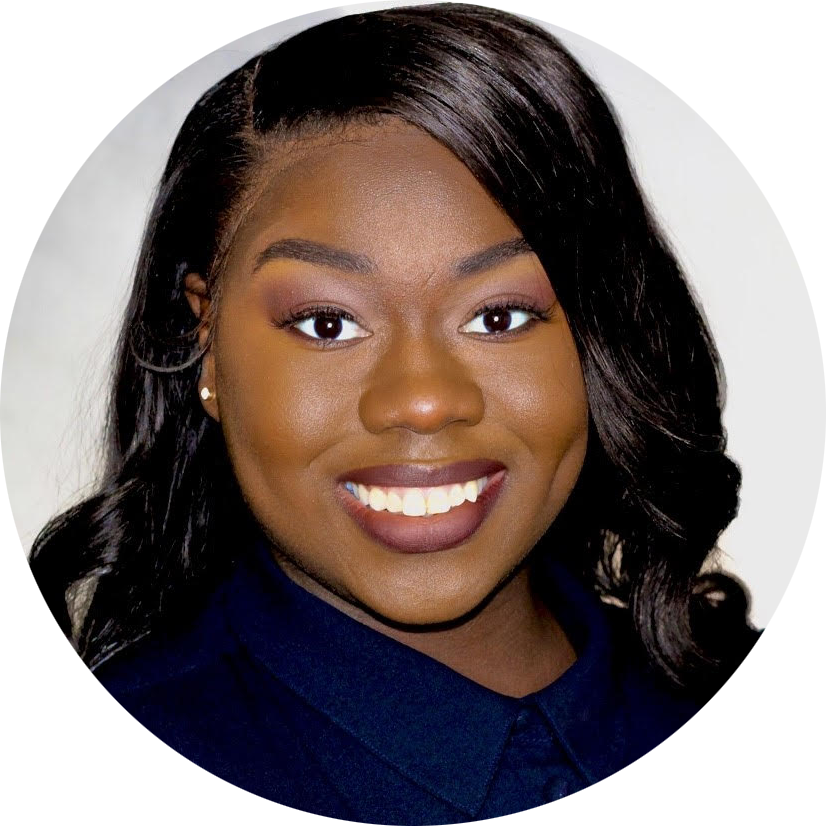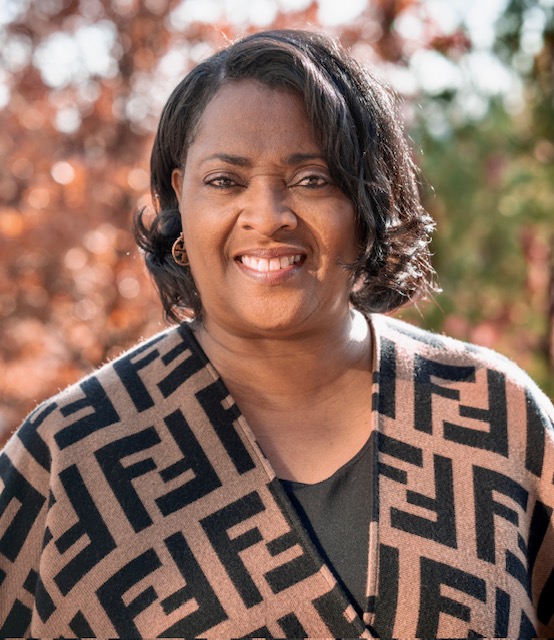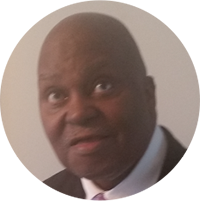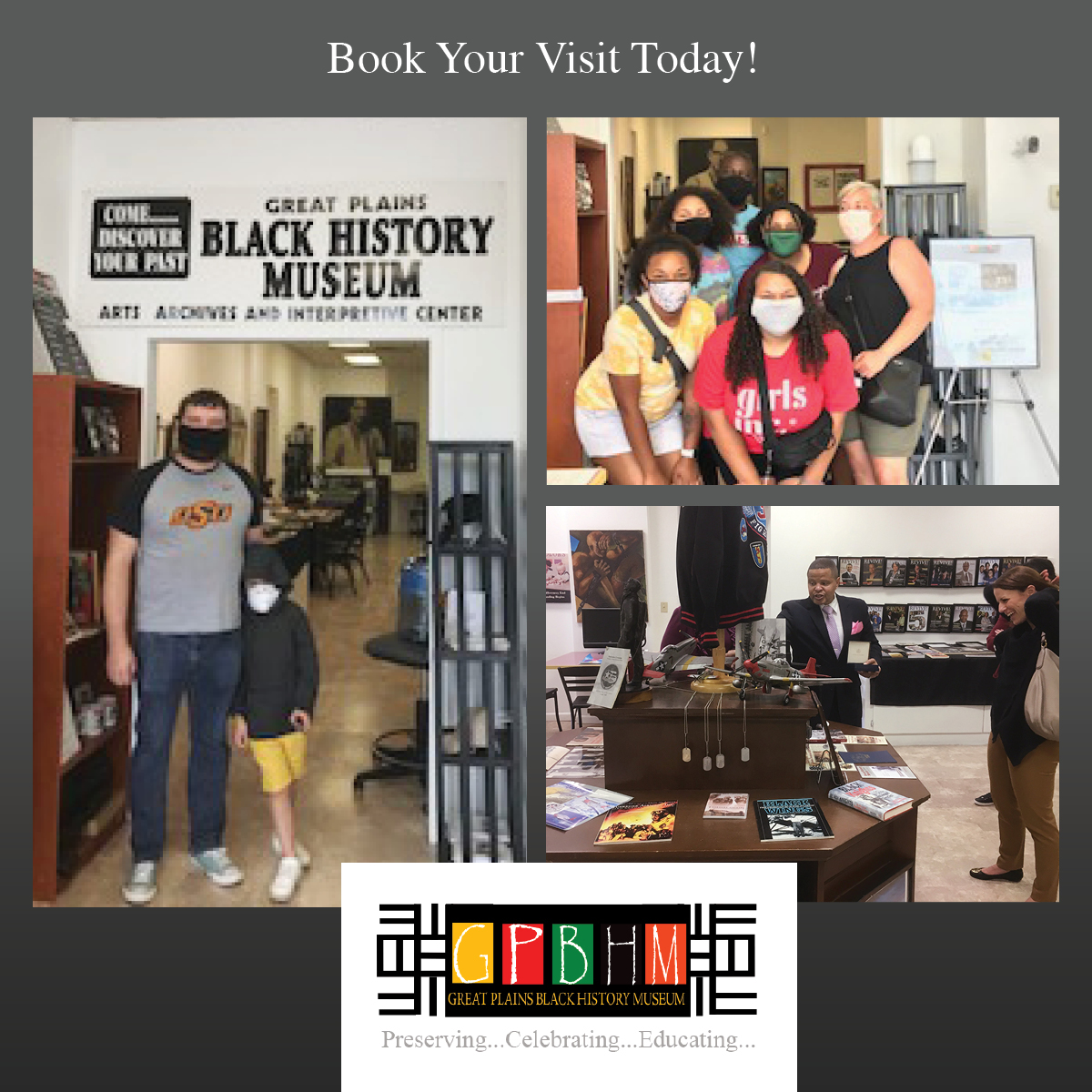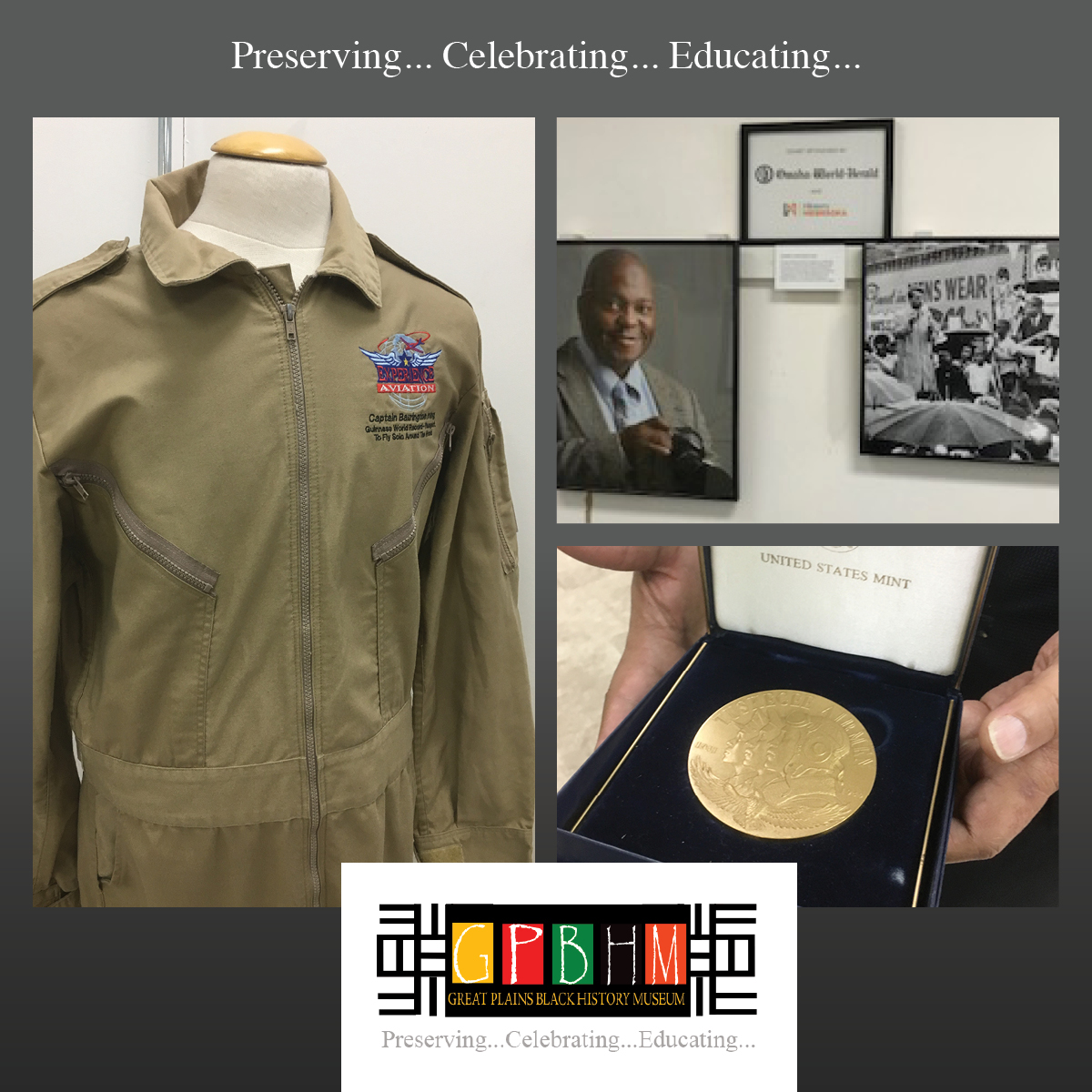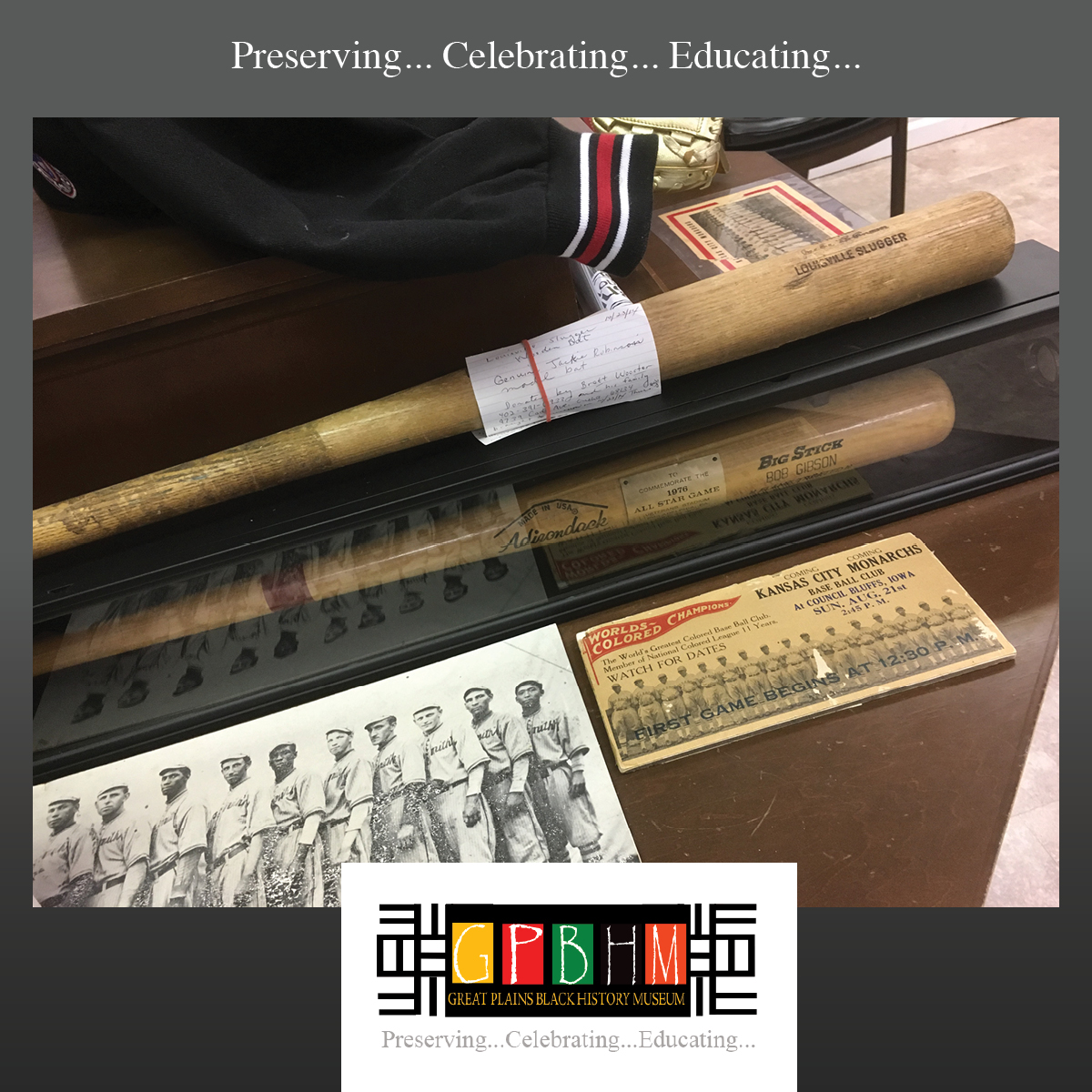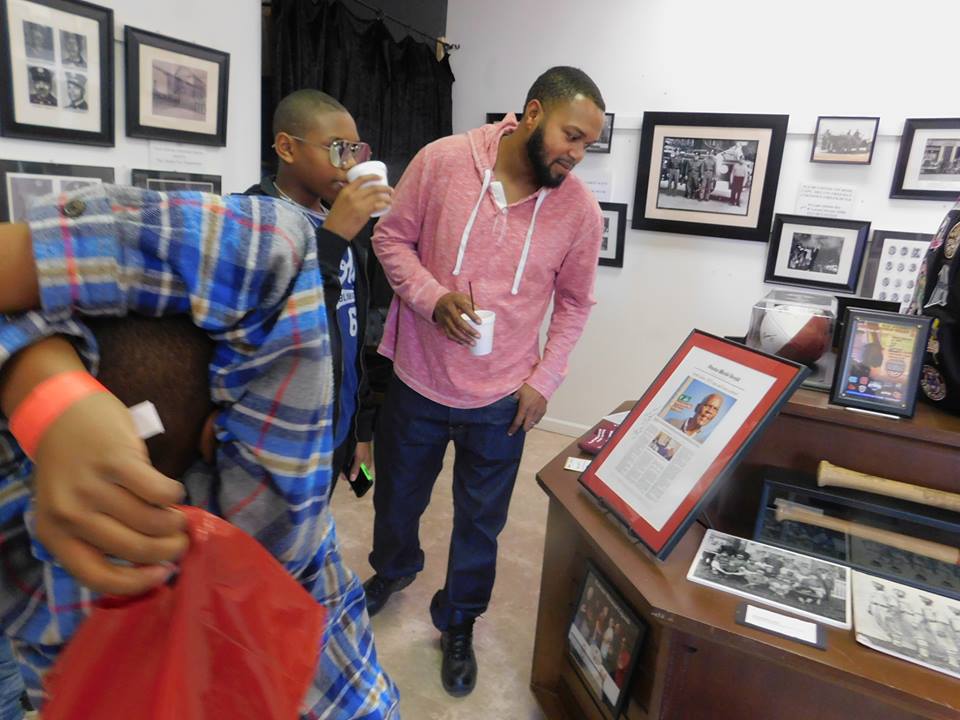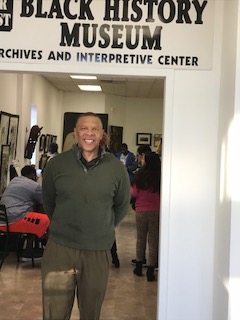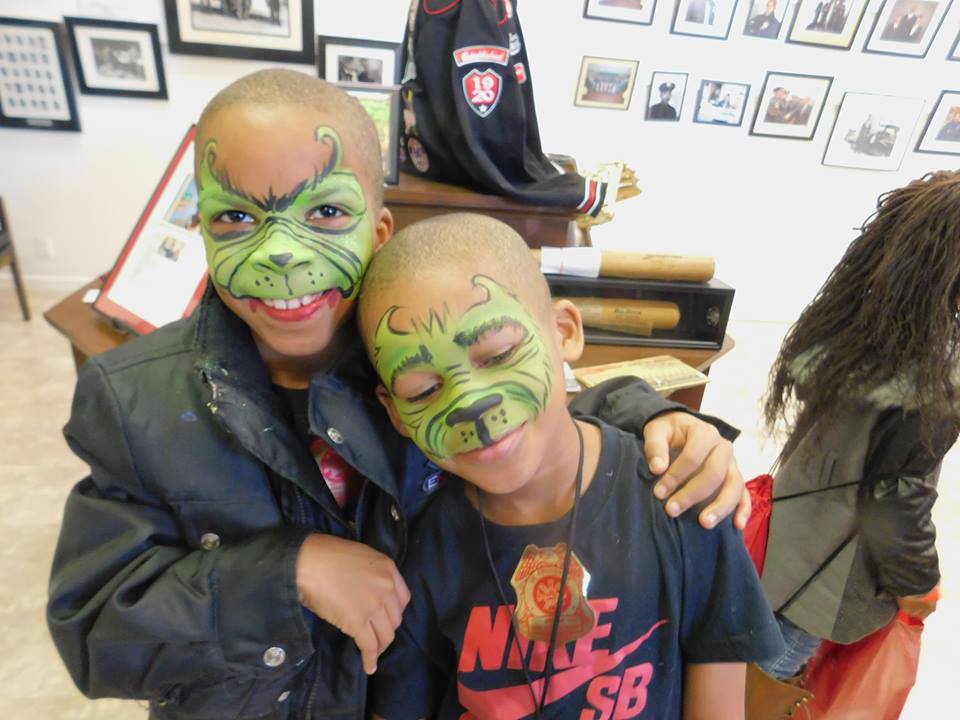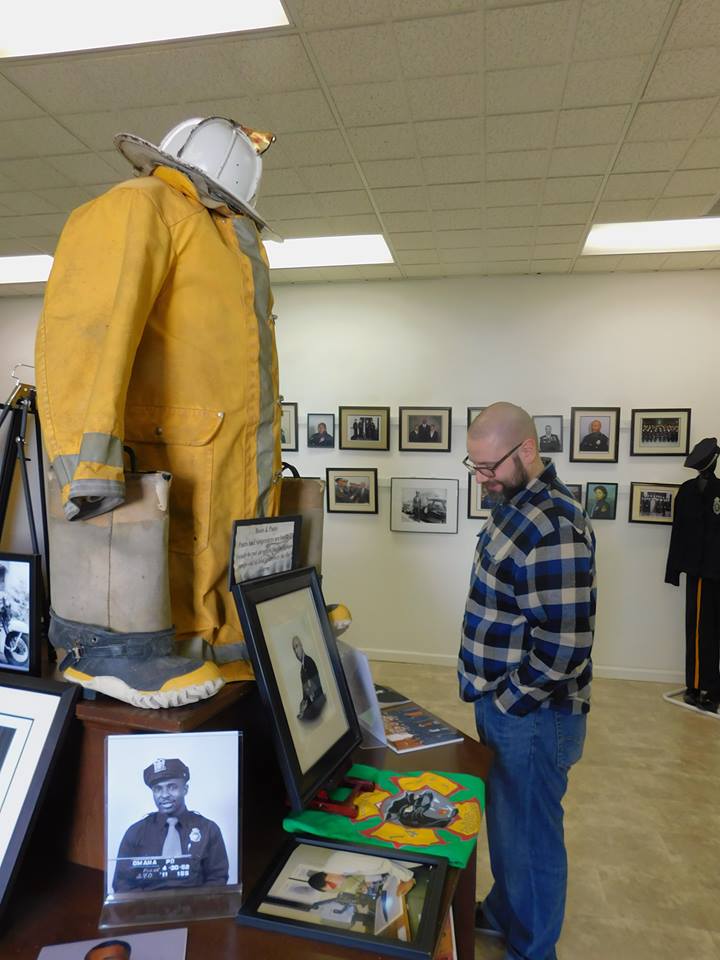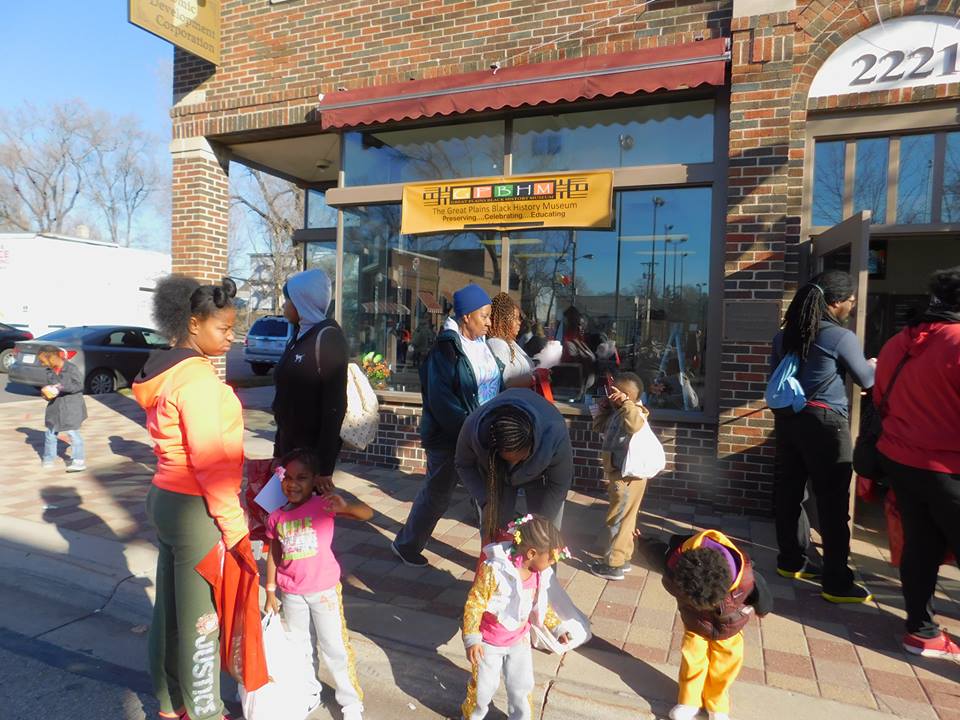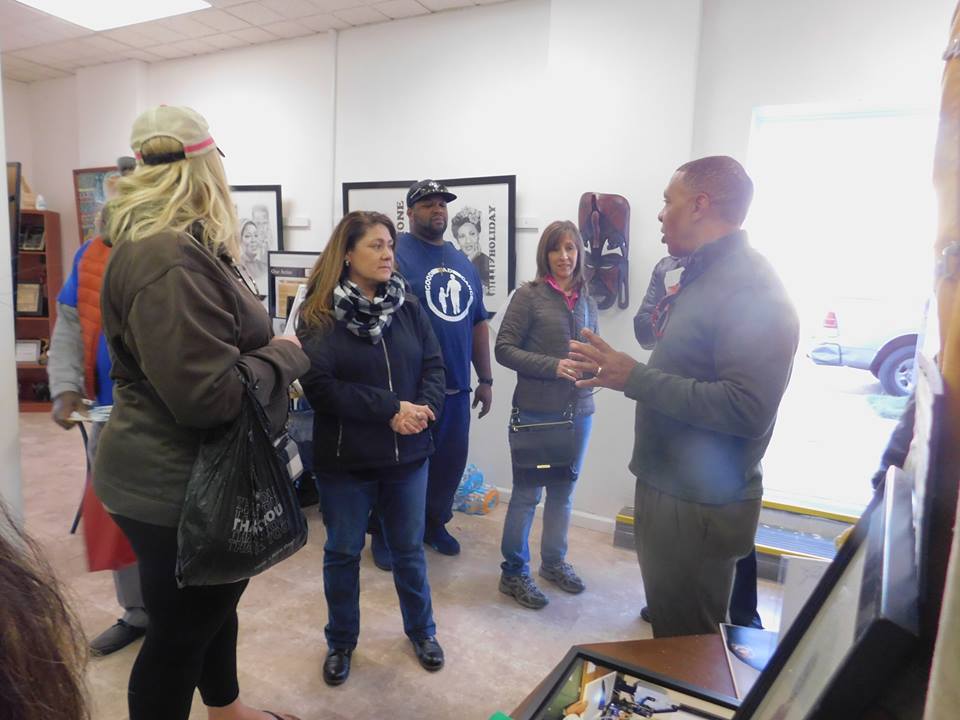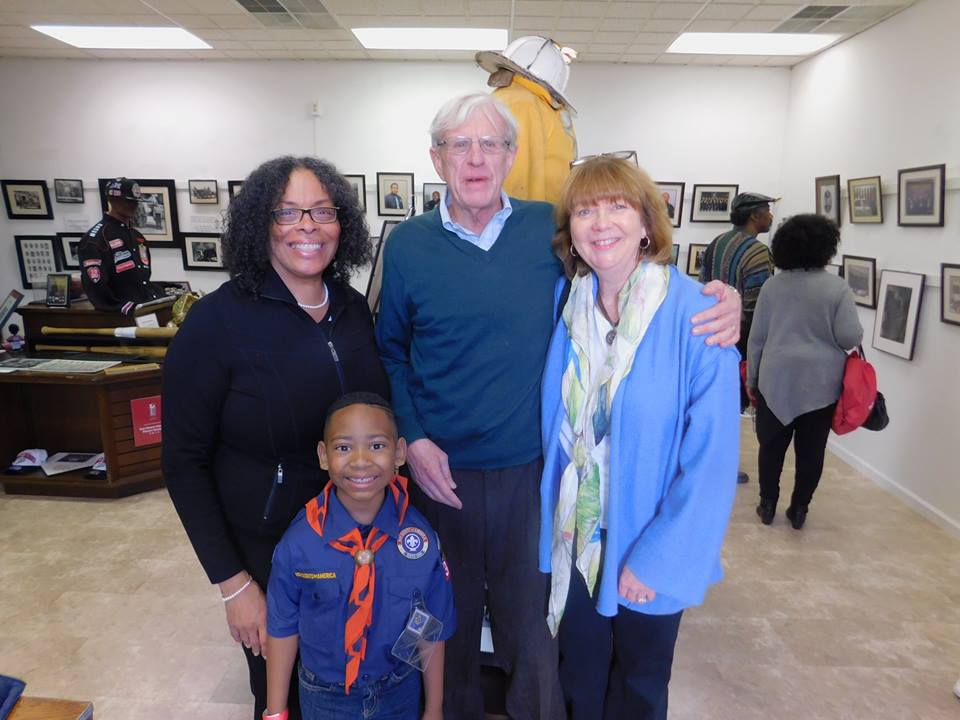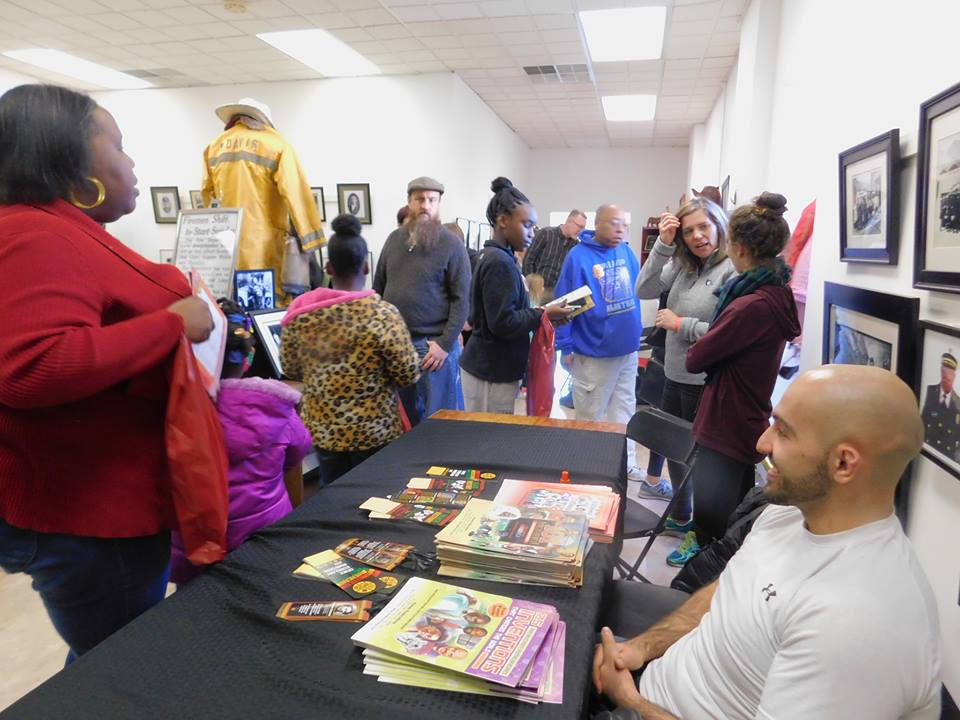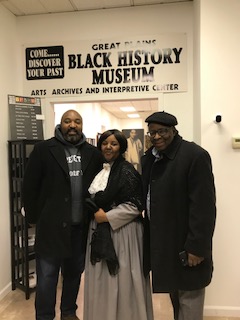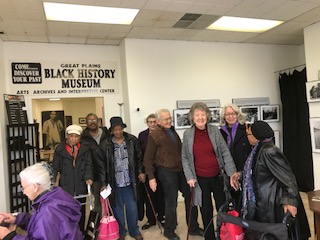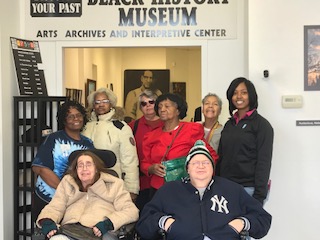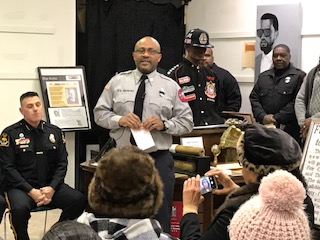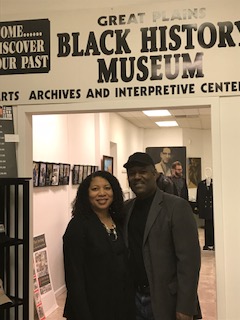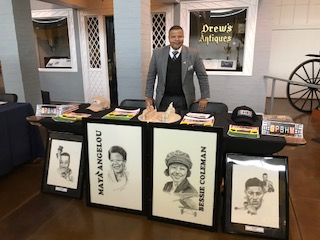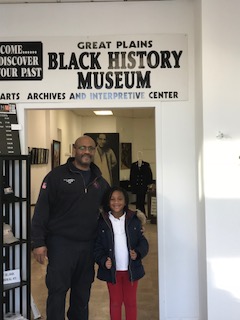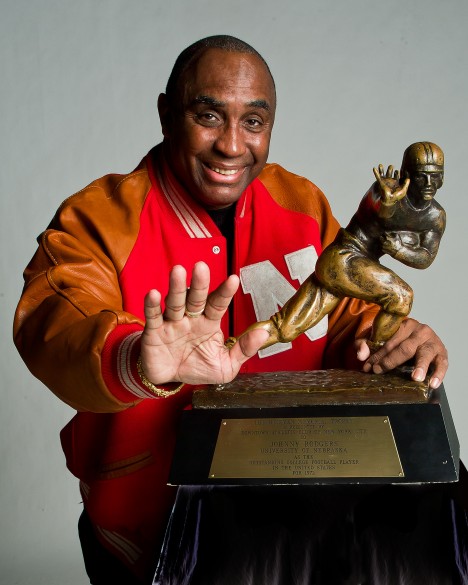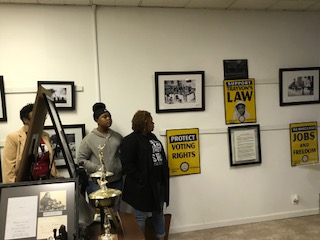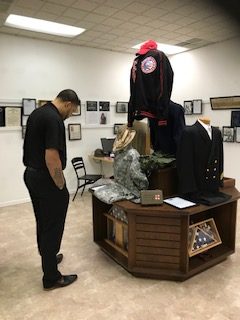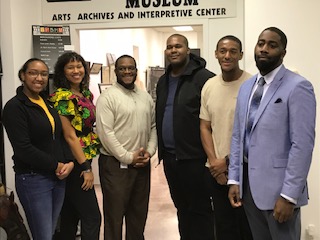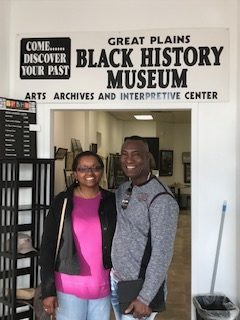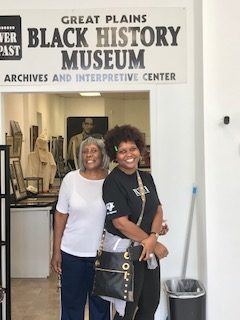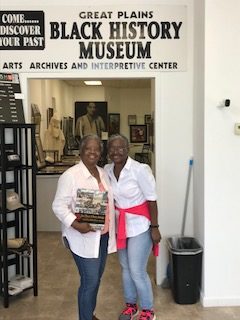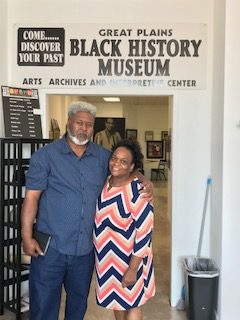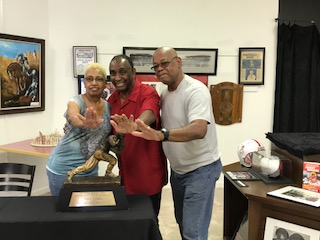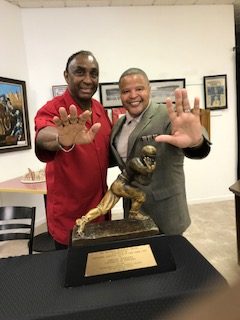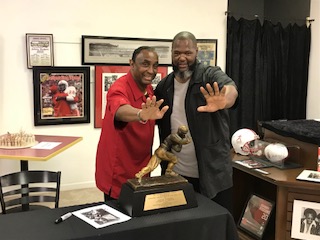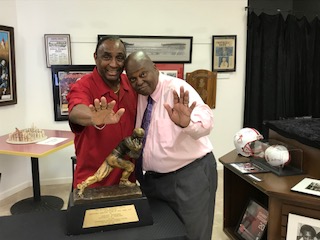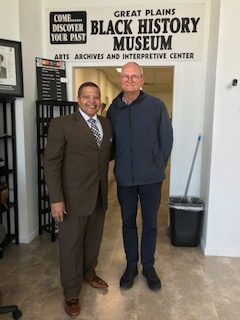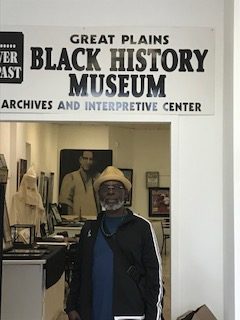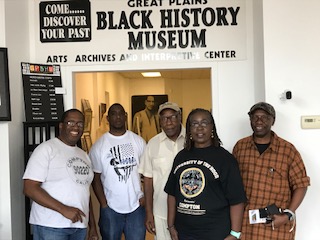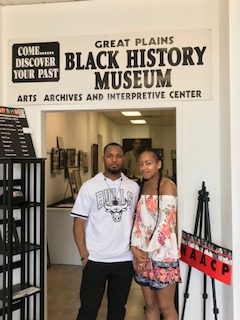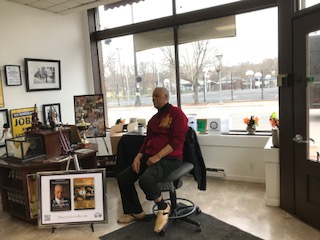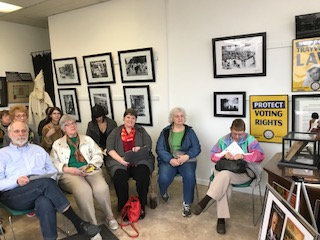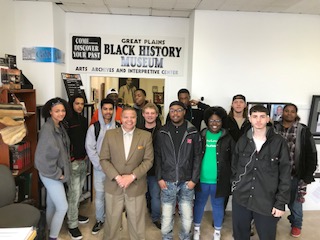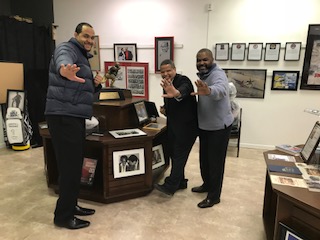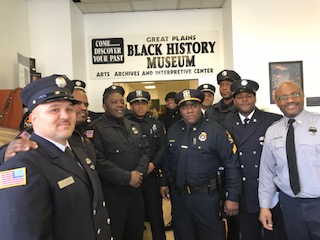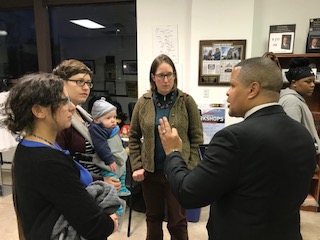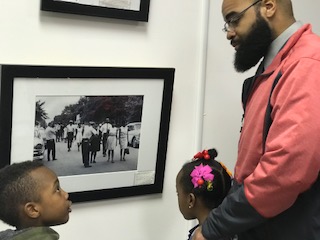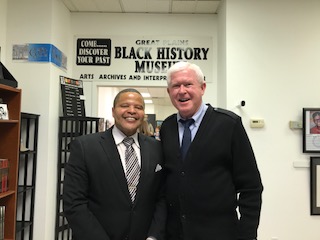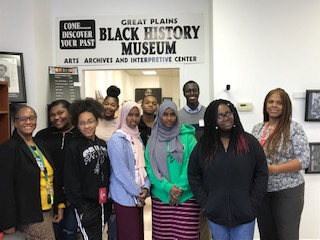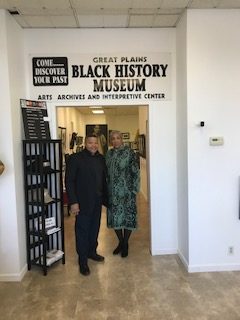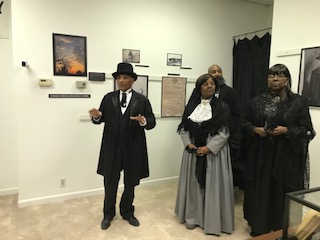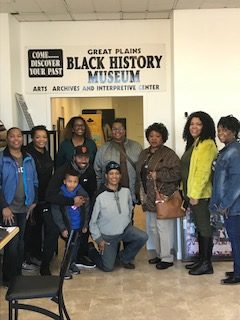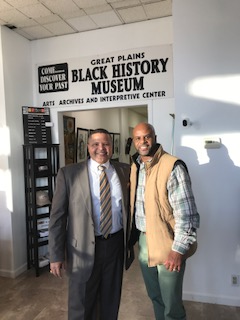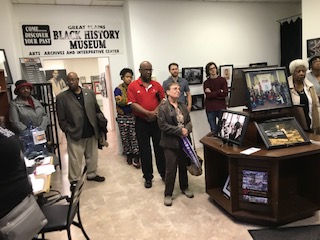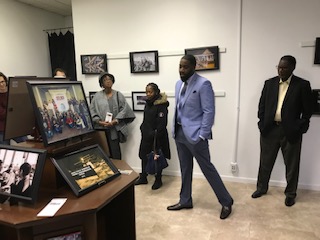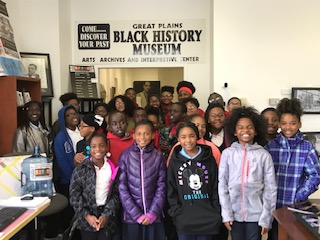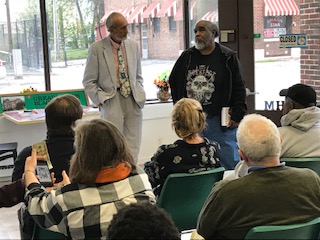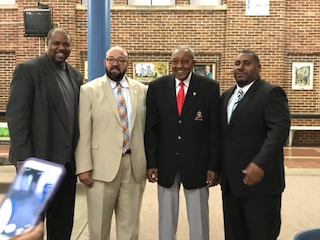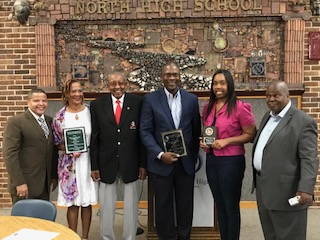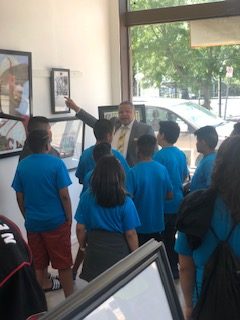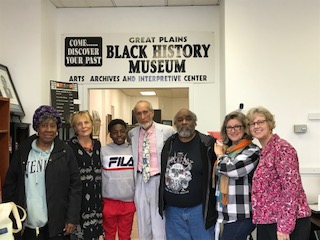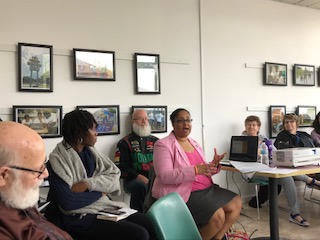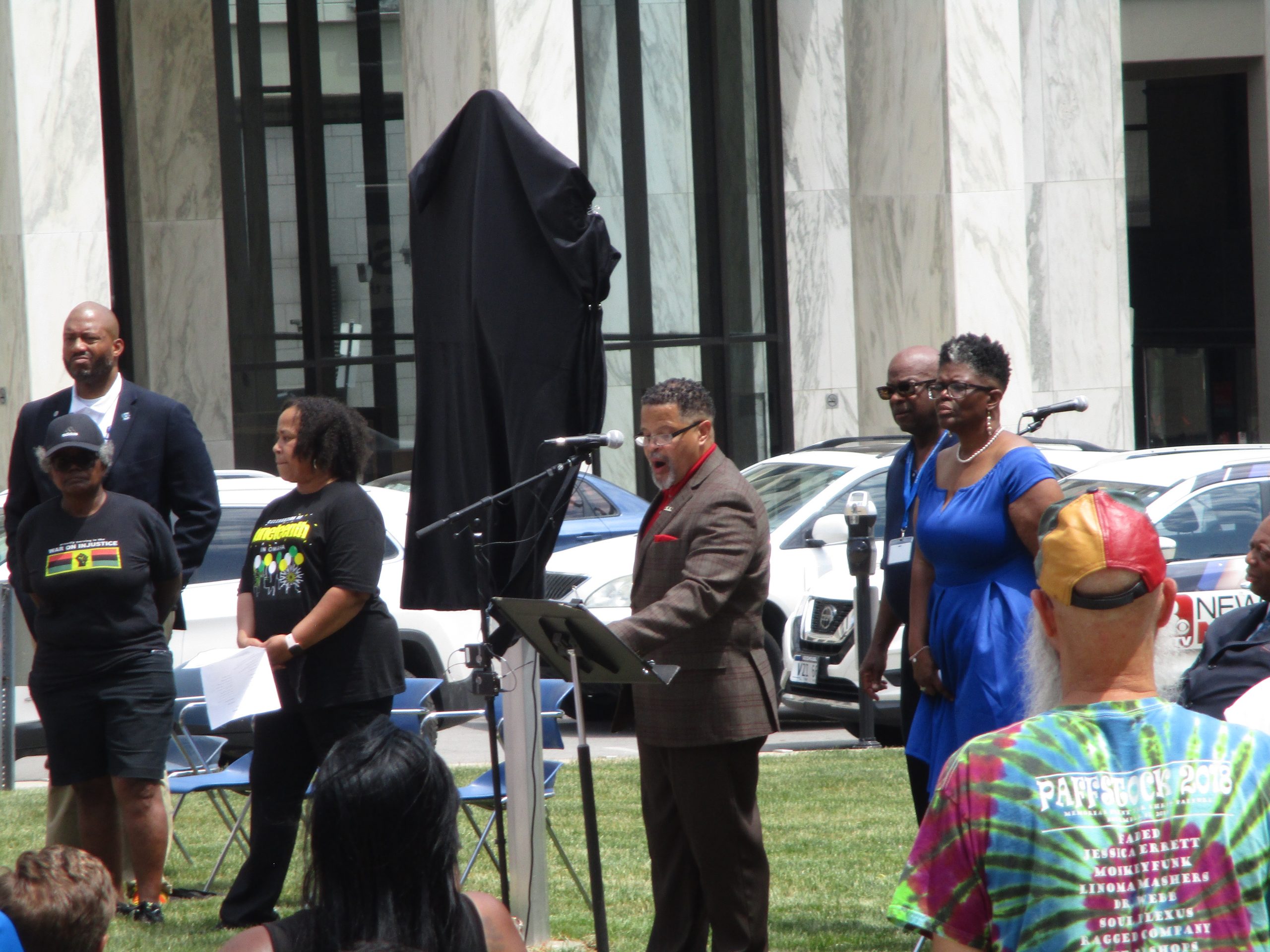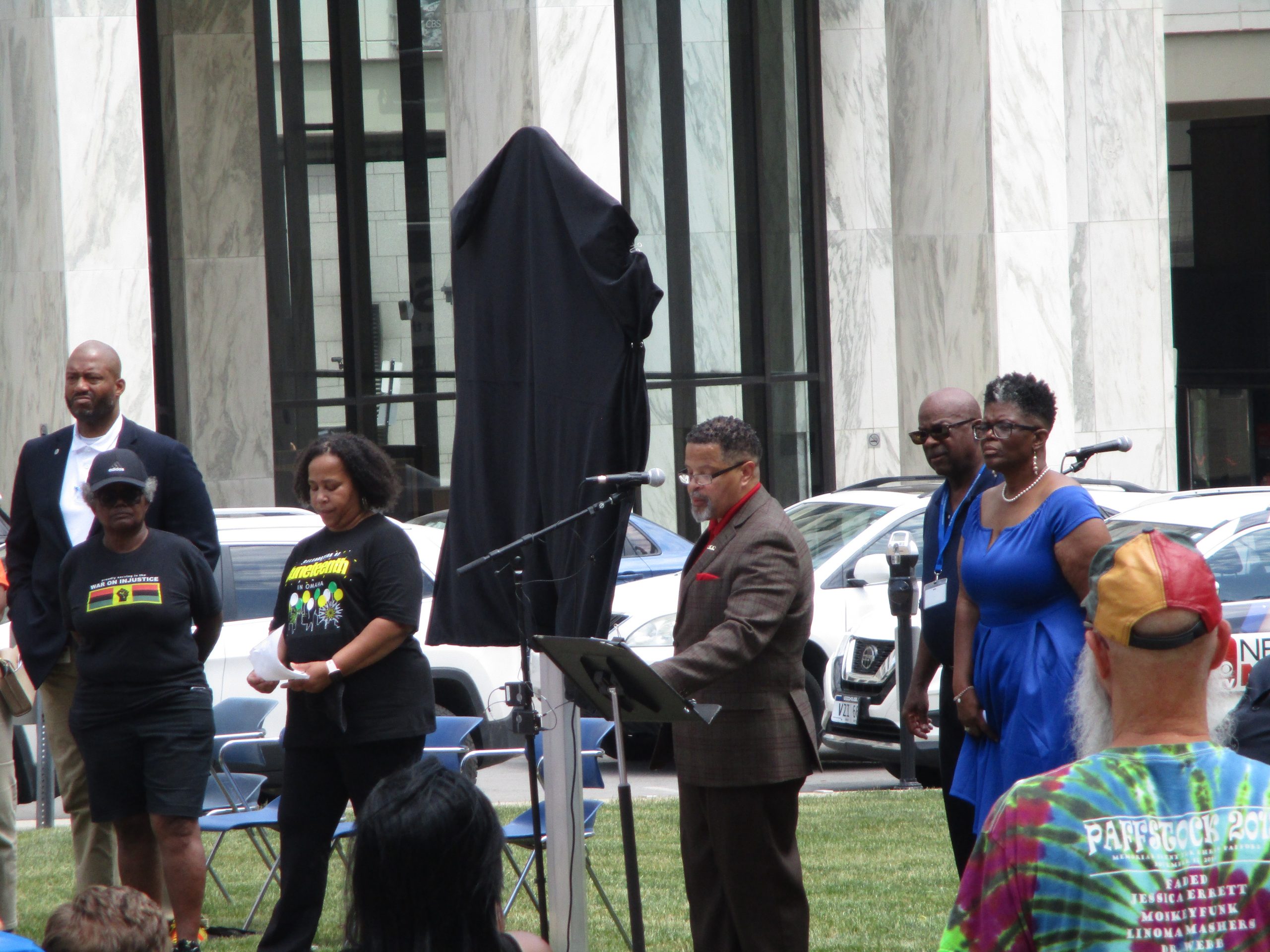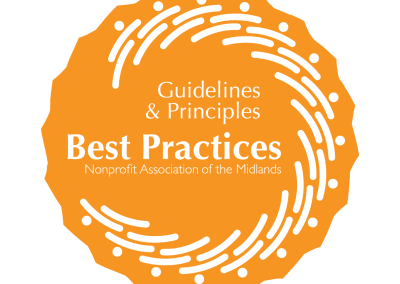Welcome to the
Great Plains
Black History Museum
Our mission is to preserve, educate, and exhibit the contributions and achievements of African Americans with an emphasis on the Great Plains region, as well as provide a space to learn, explore, reflect and remember our history.
On Exhibit
Great Plains Black History Museum is proud to host rotating exhibitions throughout the year. Below, you’ll find details for our in-person and online exhibitions.
Online Exhibits
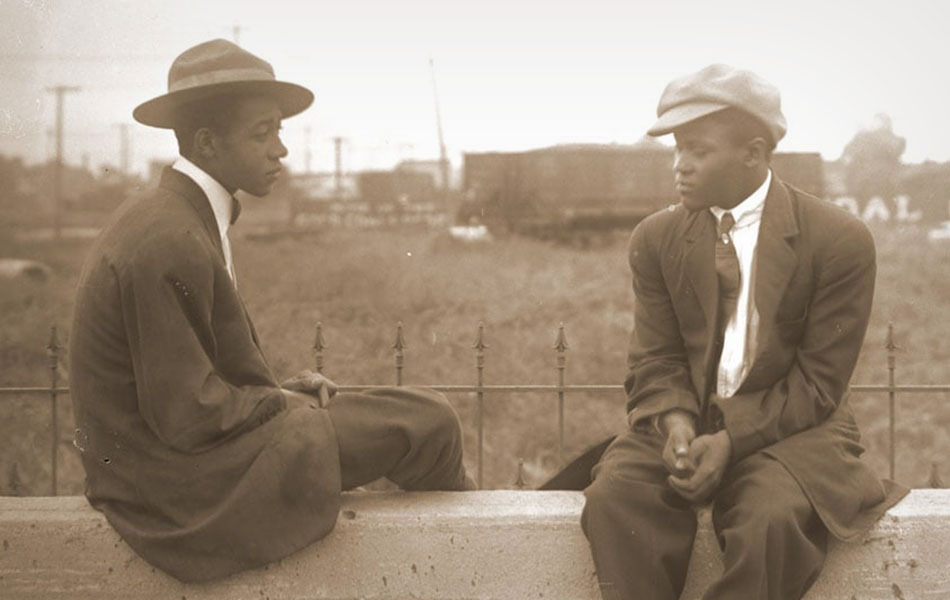
Black and White in Black and White
Virtual Gallery
This virtual exhibition reveals the dignity and hope of African Americans in early 20th‑century America. In 1965, 16‑year‑old Doug Keister acquired 280 glass plate negatives, originally found at a local garage sale. He immediately made prints from some of the plates, revealing powerful, early 20th-century portraits of African Americans in Lincoln, Nebraska. These astonishing images are now on display in a virtual exhibition curated by Keister.
In-Person Exhibits
Hate & Hope – Permanent Display
The Great Plains Black History Museum invites you to tour its Hate & Hope Exhibit. This exhibit focuses on the ugly part of history in the Great Plains and positive events in Omaha, as well as other parts of America. The Hate exhibit displays the history of lynchings throughout the Great Plains of America. The Hope exhibit features Mrs. Bertha Calloway, the founder of the GPBHM, information on the first African American film company, and other accomplishments of African Americans.
24th & Glory – Permanent Display
Through photos and artifacts that features Johnny “The Jett” Rodgers’ Heisman Trophy. The exhibit looks at the intersection of civil rights and Omaha’s greatest generation of athletes to come out of one community.
African American History Through Street Signs – Permanent Display
African American History Through Street Signs exhibit will focus on all the streets in Omaha, Nebraska that have been named after African Americans, and will also feature QRC codes are placed on the signs throughout Omaha to learn more about each individual online.
The Negro Green Book of Travel: Nebraska Travel – February 4 to March 28, 2026
he Negro Green Book of Travel, also known as The Green Book, was a travel guide published from 1936 to 1967 during the era of Jim Crow laws in the United States. It was founded by Victor Hugo Green, a Black postman from Harlem, compiled a guide to help African American travelers find safe places to eat, sleep, and rest while traveling. The guidebook was essential for its time, as it provided a list of businesses that would accept African American customers, such as restaurants, hotels, and gas stations, during a time when such establishments were often segregated and discriminatory. The Green Book’s impact extended beyond the United States, with later editions including information on international travel destinations. Its publication ceased shortly after the Civil Rights Act of 1964, which outlawed the types of racial discrimination that made the Green Book necessary.
Women Herstory, a Celebration of African American Trailblazers – March 4 to April 29, 2026
Women’s Herstory exhibit explores national and local African American women trailblazers, who have had an impact on America. As we celebrate Women’s Herstory month.
Black Citizenship in the Age of Jim Crow – April 2 to May 31, 2026
Black Citizenship in the Age of Jim Crow explores the struggle for full citizenship and racial equality that unfolded in the 50 years after the Civil War. By 1868, all persons born in the United States were citizens and equal before the law. But, efforts to create an interracial democracy were contested from the start. A harsh backlash ensued, ushering in the “separate but equal” age of Jim Crow.
A League of our Own Negro League Baseball – June 4 to July 5, 2026
A League of Our Own, The Negro League Baseball Exhibit. It is said that in 1839, Abner Doubleday invented the game of baseball, but today’s game should be credited to Alexander Joy Cartwright. In 1845, Cartwright added the “diamond-shaped infield, foul lines, and the three-strike rule.” In 1920, Major League Baseball was founded, but their league did not allow African Americans to participate. So, that very same year, we established a League of Our Own, the Negro Baseball League.
The March on Washington for Jobs & Freedom – July 30 to September 26, 2026
The March on Washington for Jobs and Freedom exhibit, in remembrance of the Dream. On August 28, 1963, the “Big Six” leaders of the civil rights movement were responsible for conducting the largest demonstration ever seen in our nation’s capital.
The History of the Buffalo Soldiers – October 1, 2026 to January 2, 2027
The Buffalo Soldiers were African American soldiers who served in the U.S. Army, primarily on the Western frontier after the Civil War. Established in 1866, six all-Black regiments were created, which later consolidated into four: the 9th and 10th
Cavalry and the 24th and 25th Infantry. The nickname “Buffalo Soldiers” is believed to have been given by Native American tribes, reflecting their bravery and resilience during conflicts. These soldiers played a significant role in the westward expansion of the United States, engaging in battles with Native American tribes and contributing to military efforts during that era. Their legacy is celebrated for its impact on American history and the fight for civil rights.
Tuskegee Airmen & Those Who Served AA in Military – October 1, 2026 to January 1, 2027
Tuskegee Airmen Who Called Nebraska Home & African Americans Who Served Exhibit. This exhibit looks at the Tuskegee Airmen who lived in Nebraska and local African Americans who served in the Military.
The History of Kwanzaa – December 3, 2026 to January 1, 2027
The History of Kwanzaa exhibit celebrates the history of its founder Dr. Maulana Karenga, and its seven principles and symbols.
Dr. Martin Luther King Jr. Wreath Laying Ceremony – TBD
March on Washington Celebration – Saturday, August 1st, 10 AM to 12 PM
Fall Feast – TBD
Trick or Trunk – Saturday, October 24th, 1 PM to 4 PM
Veterans Day Celebrating African Americans Who Served – Wednesday, November 11th, 12 PM to 3 PM
Christmas in the Village – Saturday, December 5th, 12 PM to 5 PM
Kwanzaa Celebration – Sunday, December 26th to Saturday, January 1st, 12 PM to 1 PM daily
Become a Member
Purchasing an annual membership means supporting our exhibitions and gaining access to members-only benefits, like invitations to special events and a 10% discount on our merchandise. You’ll receive an official membership card within two weeks of your purchase, but you can visit the museum any time before then.
Student: $10
Single: $20
Family: $40
Business: $100
Lifetime: $500
Please contact the museum if you would like to gift a membership.
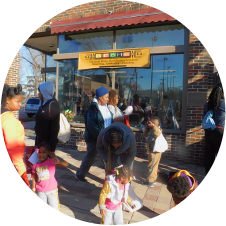
About Great Plains Black History Museum
For the past 40 years, the Great Plains Black History Museum has been an important institution dedicated to publicizing and preserving the achievements of the region’s vibrant African American heritage. We welcome the African American community, regional residents and schools, and Omaha-area visitors.
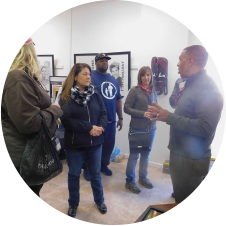
Vision
We collect and preserve materials documenting the Black experience while making these available to the public. We are an educational resource available for schools, inspiring learning through our permanent collection, exhibitions, and programs. We aim to generate growth in North Omaha and to facilitate research, instruction, and artistic expression adhering to authenticity and truthfulness in presentation.
Dear Friends of the Great Plains Black History Museum,
In 1975, Mrs. Bertha Calloway envisioned sharing the rich history of African Americans with the Omaha community. She founded the Great Plains Black History Museum (GPBHM) to be a resource for the community.
Recently, America has experienced unrest due to senseless injustice and racial violence. Once again, America is at a crossroads as it struggles to make sense of the racial abuse of its African American citizens. The board of directors & staff of the Great Plains Black History Museum would like to express our deepest sympathy to the families who have lost their loved ones during these times of unrest.
We at the Great Plains Black History Museum know that now is the time to work on the healing process and bring everyone together to make a fair and just environment for all. The great Dr. Martin Luther King Jr. once stated, “The time is always right to do what is right. We must learn to live together as brothers, or we will perish together as fools.” We at the GPBHM want everyone to know that we are here for you as a resource to help in educating everyone on the history of African Americans to bring people together and encourage the dialogue needed to bridge the divide and bring us together as one.
Eric L. Ewing, Executive Director
Portia Cavitt, Board President
Meet Our Board
Click on the photos below to learn more about each board member.
Photo Gallery
Videos
Interested in learning more about the museum? Watch the videos below.
Omaha Black History
Learn more about Omaha’s own Black history through the years.
The Museum Reopening
Step inside the grand opening event of our North 24th Street location.
Interview with our Executive Director
Eric Ewing chats with the “Before You Go” podcast about the museum and its history.
Nonprofit Association of the Midlands
Learn more about the Nonprofit Association of the Midlands and celebrate nonprofits!
Great Plains Black History Museum
2221 N. 24th Street
Omaha, NE, 68110
402-932-7077
![]()
/Greatplainsblackhistorymuseum
Hours of Operation
Wednesdays, Thursdays, Fridays, and Saturdays
1-5 PM
*Private Tours available by Appointment



